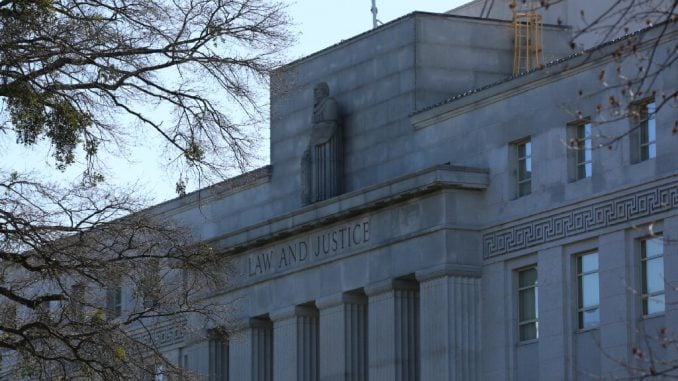
We are dyed-in-the-wool North Carolinians. Our love of law and policy was born in the uniquely purple tension that permeates nearly every aspect of life in our state. Like many of you, we’re used to big political battles playing out in all branches of our state government. But we hope that you can agree that the challenge to our judicial norms that is currently being mounted at the North Carolina Supreme Court is not good for the state we all love.
In the latest iteration of NAACP v. Berger, the plaintiffs claim that two amendments to our state constitution that were approved by North Carolina voters — the voter ID and income tax cap amendments — are invalid because some of the legislators who voted to put the amendments on the ballot came from racially gerrymandered districts. This lawsuit has made its way up through the lower courts and is now being teed up for review by the North Carolina Supreme Court.
That’s business as usual around here. Political battles are just a fact of life in North Carolina. But the tactics being used in this particular fight, if successful, would set dangerous new rules of war going forward.
Last month, the plaintiffs asked our entire Supreme Court to decide whether two Republicans on our Court need to be prohibited from deciding (“recuse” themselves, in lawyer-speak) this contentious political case. The idea behind recusal is that when a judge, who must be a neutral arbiter of a dispute, cannot be impartial in a given case, then he or she must not participate in deciding that case.
But what is unusual about this recusal request is who the plaintiffs are asking to decide the recusal request. The undisputed norm, in both the Supreme Court of the United States and the Supreme Court of North Carolina, is that the individual justice decides if he or she can be impartial or needs to recuse. Oftentimes, they recuse without the parties asking them to. It would be unprecedented for a majority of the Court to involuntarily disqualify one of its own elected members from hearing a case.
Here, the plaintiffs are asking that the whole Court involuntarily disqualify two of its members from hearing this critical case. And what is even more shocking is that a majority of the Court is apparently considering doing just that. On Sept. 28, the Court issued an order asking the parties for additional arguments on whether the entire Court could require “involuntary recusal” of some of its members.
Before you decide that the ends justify the means in a case as important as this one, consider this: the majority of the justices on the North Carolina Supreme Court are Democrats right now. But two of those Democrat justices are up for reelection next year, and none of the Republicans are up for reelection. The odds are very good that at least one Democrat will be replaced by a Republican, flipping partisan control of the Court to Republicans.
In recent years, our state Supreme Court has been called on to decide all kinds of hot-button cases with political implications — from the legality of voting districts to the partisan makeup of our state Board of Elections to school vouchers. Do you want a Republican majority to be able to kick Democratic justices off blockbuster cases when the shoe is on the other foot?
Our North Carolina Supreme Court justices may have different judicial philosophies, but, at the end of the day, we have to trust these elected officials to be impartial jurists and respectful colleagues. They can’t do that if they are facing political pressure to shape which members of the Court get to decide cases.
We hope and believe that Justices Berger and Barringer will decide the NAACP’s request for themselves and that their colleagues on the other side of the bench will let them. That will be the only outcome here that protects the legitimacy of the Supreme Court and keeps the rules of engagement fair for the Court’s next big political showdown.
Troy Shelton and Ashley Terrazas are attorneys for Fox Rothschild LLP in Raleigh. Both have litigated cases before the N.C. Supreme Court.



